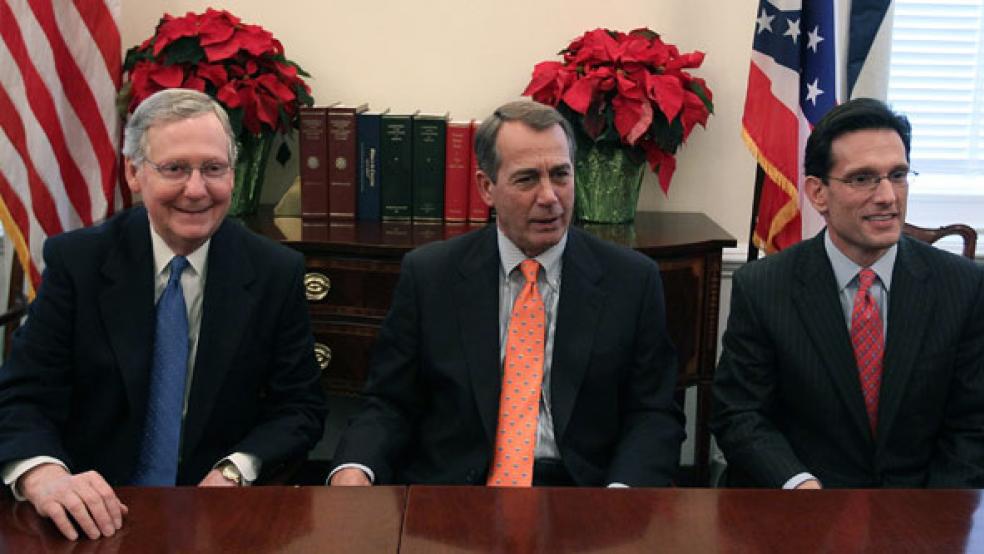What's a Republican to do after hopes were dashed in the 2012 election? Find a new way to force the White House and Senate Democrats to cut more spending, of course.
On Friday, House Republicans wrapped-up their retreat in Williamsburg, Va. with a strategy in place to shift the burden onto the Senate. Rather than force a harsh debate right now over raising the country’s $16.4 trillion borrowing capacity—which was maxed out at the end of last year—GOP lawmakers want the Senate to do something it hasn’t accomplished in years: pass a budget.
Here’s the House GOP plan as it stands for the moment:
1) Raise the debt ceiling by enough to allow a three-month extension, according to a statement by House Majority Leader Eric Cantor, R-Va. That represents a change in direction for House GOP leaders, who previously had insisted on pairing any increase in the debt limit with an equal amount on spending cuts. During the three-month window, the Senate must approve a budget, or else lawmakers will have their pay frozen.
2) Be comfortable letting the $109 billion in sequestration cuts go through as planned (and throw the Pentagon budget under the bus). Not ideal, but they see it as a negotiating tactic that could bring concessions from Democrats.
The new Republican plan regarding the debt limit would shift the emphasis in the fiscal debate to the sequestration cuts scheduled to take effect on March 1 and the stopgap budget funding the federal budget, which expires on March 27. The short-term plan carries plenty of risk, though. President Obama has refused to negotiate on any debt ceiling increase and he rejected the budgets passed by the House during the previous two years, as they most notably overhauled Medicare for Americans under the age of 55.
Some Wall Street market analysts don't like the latest Republican strategy, either. According to Politico, a Nomura analysis claims markets would suffer. Nomura said, "The agreement of only a temporary extension would disappoint markets."
Many Washington insiders viewed the retreat in Williamsburg as more of a group therapy session rather than a policy brainstorm. The Republican Party has been in the throes of conflict ever since negotiations over the fiscal cliff split the House caucus and nearly resulted in Boehner losing his speakership.
Worries that the party will be seen as outside the mainstream of the current American consensus on issues like immigration and gun control has brought criticism from prominent Republicans like Colin Powell, John Huntsman and Joe Scarborough.
The one issue that does tie the party together is deficit reduction. Cantor said in his statement, "We must pay our bills and responsibly budget for our future. ... Furthermore, if the Senate or House fails to pass a budget in that time, Members of Congress will not be paid by the American people for failing to do their job. No budget, no pay.
"This is the first step to get on the right track, reduce our deficit and get focused on creating better living conditions for our families and children. It's time to come together and get to work."





